International holidays have faded into a distant memory. Thanks to Covid-19, the very idea of jet-setting abroad seems… well, foreign.
But rest assured, sooner or later the airports will open and Australians will be back to engaging in one of our favourite pastimes – travelling abroad.
This pandemic has systematically changed the way we live, some for the worse and some for the better.
Whilst your work habits and hygiene practices may have improved, there is one particular issue we would like you to add to your list - ditching the unethical animal tourism industry.

Taking Selfies with tigers
Thailand has a major tiger problem. Inside unaccredited facilities, dubbed 'roadside zoos', is an industry thriving from the mistreatment of one of our planet's most majestic creatures.
They are subjected to high forms of stress from a very young age, where they are taken away from their mothers when they're as young as three weeks old to pose in photos with tourists.
To prevent these naturally predatory creatures from harming humans, tigers are heavily sedated.
The big cats spend their entire lives in small concrete enclosures and are completely deprived of both their natural environments and being able to engage in their instinctive behaviour.
Like puppy farms, the older tigers are forced into rigorous breeding, often interbreeding and giving birth to cubs with congenital issues like deformed limbs and breathing problems.
These animals spend their entire lives being stressed, alone and scared.
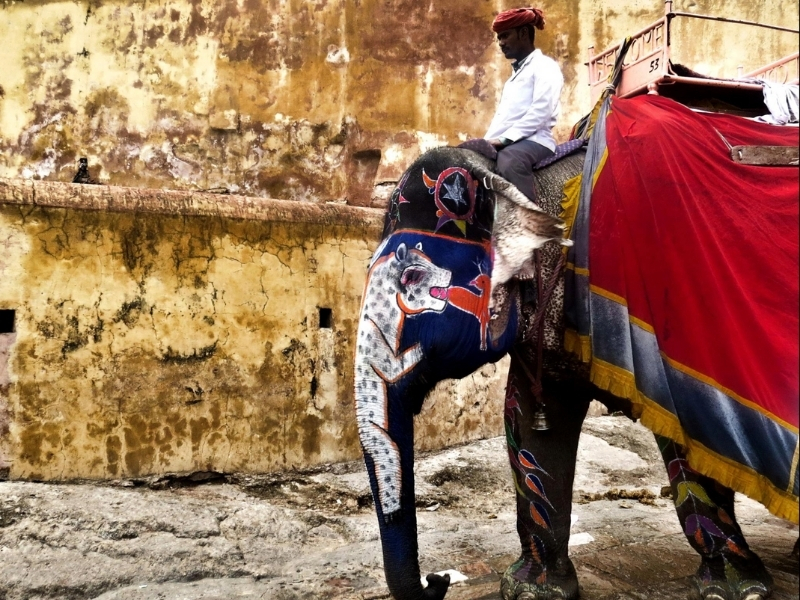
Riding elephants
Dressed in beautifully rich and elaborate colours, the elephant trains of India inspire awe. Unfortunately, behind the pageantry is an extremely cruel and sadistic industry.
It's common practice to whip a baby elephant into submission, the trainers will use bull-hooks to prod and gauge the animals until they submit. These handlers are effectively breaking the animal's spirit.
The sleep-deprived giants are forced to carry tourists for hours on end, with little food or water to fuel them. Elephants, known for their intelligence and complex emotions, often collapse or react aggressively from the immense stress.
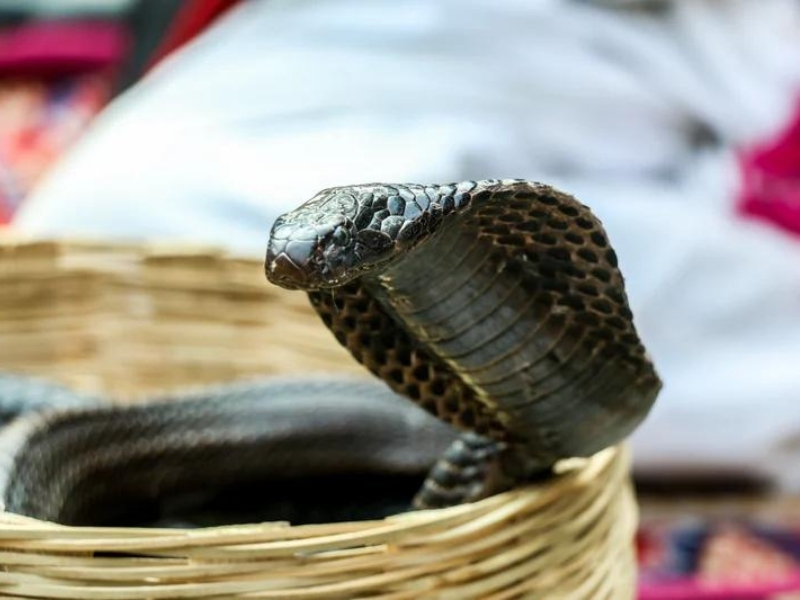
Snake Charming
There's nothing charming about snake charming. Indian Cobras are poached from the wild and mutilated.
It's illegal to own a snake in India, but despite this snake charmers can still be seen performing on the streets next to popular tourist attractions.
Their fangs are either yanked out or crushed - their venom glands are crudely gouged out or burst. Snakes rely on their fangs and glands to help digest; removing them ensures that they suffer a slow and painful death from starvation.
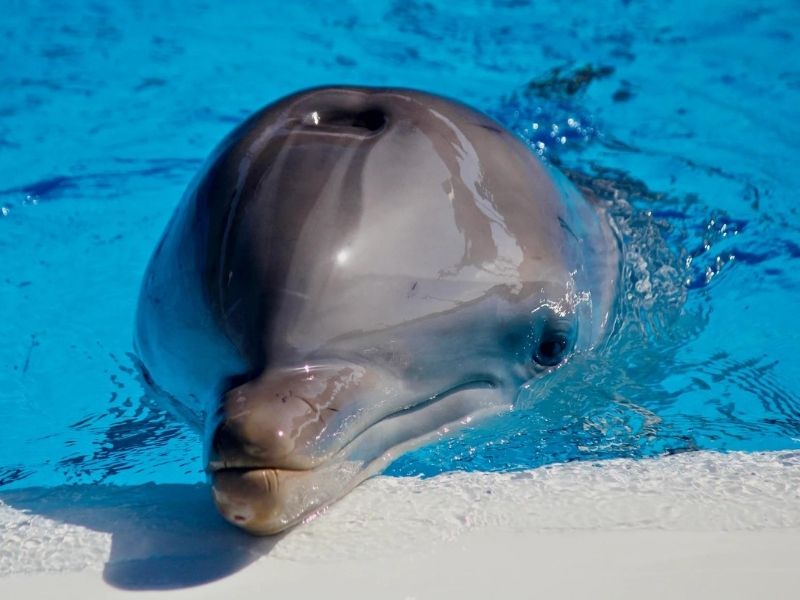
Attending Sea Parks
One of the most glamorised forms of animal cruelty worldwide is the imprisonment of marine wildlife.
Dolphins, orca whales and seals typically travel hundreds, even thousands, of kilometres in the wild. It's impossible to imagine how restricting a swimming pool is in comparison to the great feats of migration they are used to.
In some instances, the dolphins in these marine amusement parks have their teeth filed down to ensure tourists are not injured whilst swimming with them.
There have been recorded cases of dolphins taking their own lives by deliberately ceasing the breathe while in captivity.
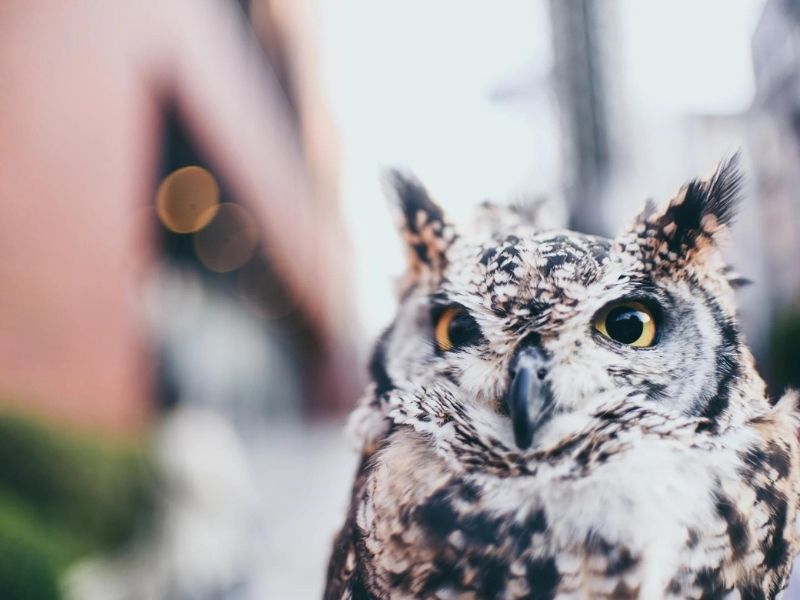
Owl Cafes
Japan is a country obsessed with themed restaurants; with bars dedicated to canned food and even robot break dancers, there's a place to visit for everyone.
Sadly, animals aren't spared from the theme frenzy, with owl restaurants proving to be a popular tourist attraction.
Bright unnatural lighting paired with cluttered loud ambience creates a highly stressful environment for the naturally reclusive and nocturnal animals.
The cafes disrupt the owl's sleeping schedule, making them feel disorientated and fatigued.
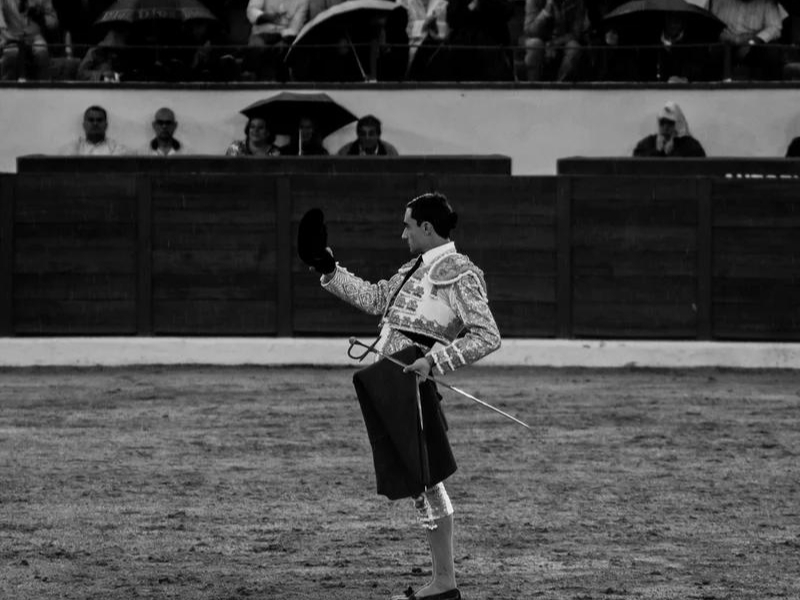
Bullfighting
It's a billion-dollar industry, with roots in Latin America, Spain and Portugal - bullfighting is a brutal spectacle.
The beautiful animals are raised in horrific conditions and are trained to be aggressive through abuse from a young age.
The bulls are given tranquillisers and beaten prior to the fighting, further hindering their ability to fight back. When they first enter the arena, the bulls are harassed by men carrying swords while riding blindfolded horses.
The men stab the bull, leaving the animal with sword protruding from its body, and the horses are often gored and injured in the process.
Finally, the matador enters the arena and duels with the weakened animal. This action is often hailed as being brave and heroic but is nothing of the sort.
Whilst the bull may seem aggressive, he is scared, in pain and tormented, running at the matador as a last chance of survival. Eventually, the matador kills the bull by stabbing the animal with a knife to the back of its head. The violence and suffering witnessed in this form of entertainment is shocking. That anyone would find it entertaining is shocking.
Tradition should never serve as an excuse for cruelty.
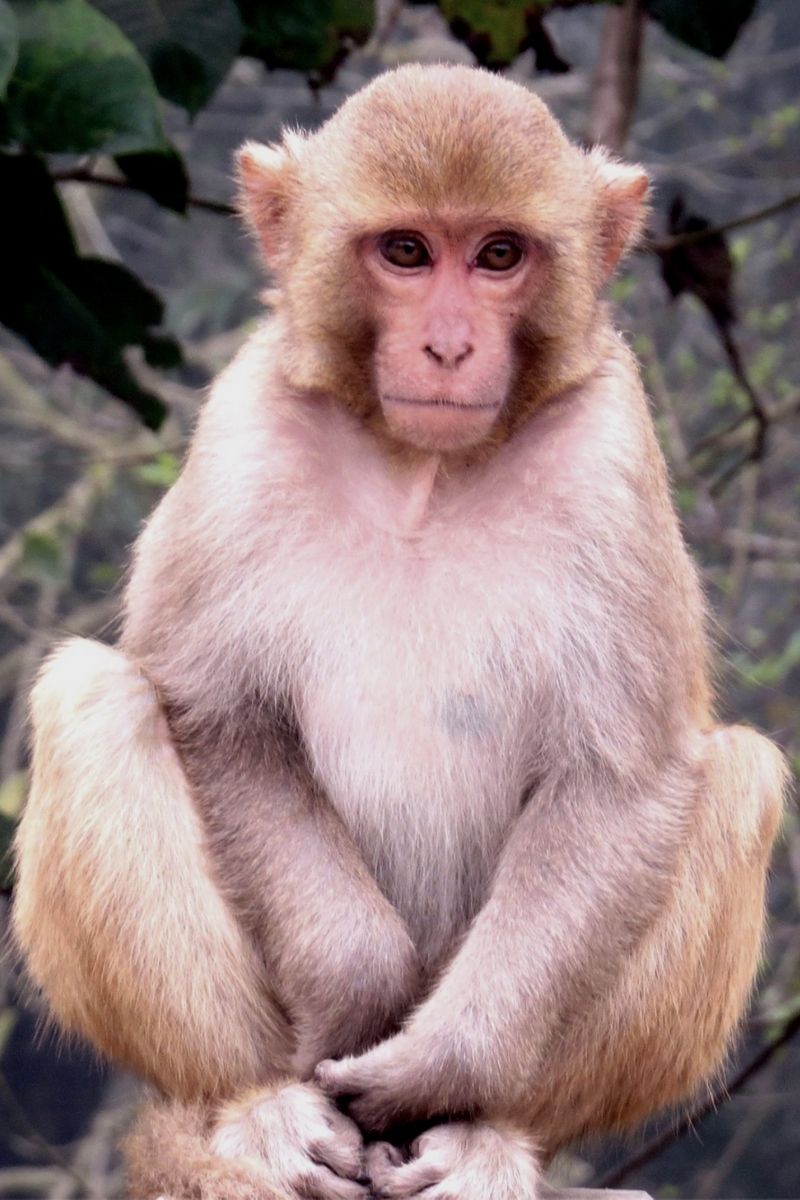
Dancing monkeys
Often seen in Morocco, dancing monkeys is a street 'performance' where the small creatures are forced to perform to crowds whilst being choked on a chain.
There is a pattern in most of these cruel practices. The young animals are separated from their mothers at a young age and trained (usually in abusive ways) to "dance" and do tricks.
Although "dancing" monkeys is a disturbing and sad practice, it is very easy for tourists to be drawn in to watch the shows. Please remember the abuse those tiny creatures experience to learn how to do their "dances" and juggling, just for your entertainment.
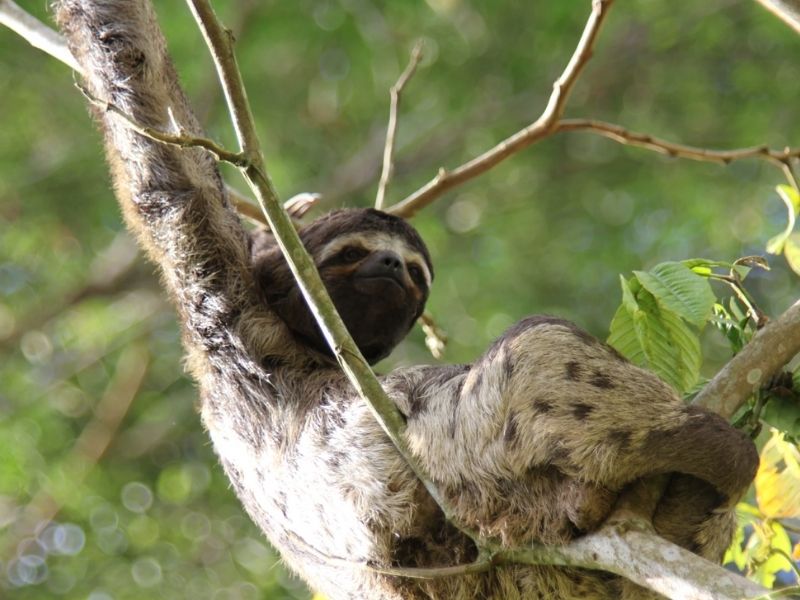
Sloth Handling
In Peru, tourists are often drawn to the sloth experiences they can indulge in. Tourists are able to hold and cuddle young sloths. Whilst it may look cute and is great for an Instagram photo, the situation is extremely stressful and can cause anxiety for the slow-moving mammal.
Sloths are used as props for photos and, as they are slow, it is easy to capture them in the wild to abuse them for tourists' enjoyment. Handling sloths not only leads to them suffering anxiety, less sleep and stress, it can also shorten their lifespan.
Sloths are adorable and fascinating creatures – let's leave them alone so we can continue to admire them in their natural habitat, rather than using them as a prop for a photo.
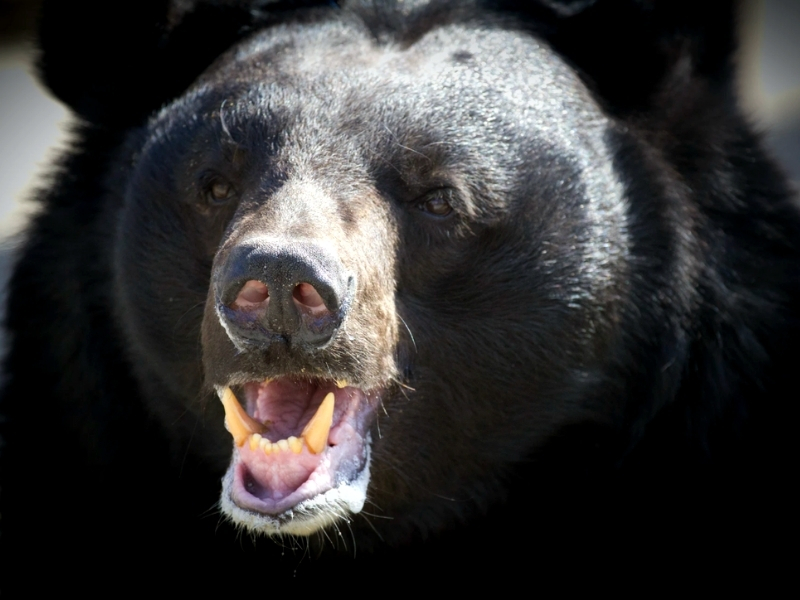
Dancing Bears
Enduring a lifetime of physical abuse, torment and mental distress, dancing bears live a tortured existence. The popularity of performing bears has dropped dramatically worldwide, however, there are still three countries where the industry is alive and well.
Tourists visiting India, Pakistan and Nepal may stumble across a dancing bear. Like many of the other examples we have shared, don't be fooled by the spectacle, behind the demeaning act of "dancing" is blatant cruelty.
Baby bears are poached from the wild, where their mothers are shot dead. They are raised in the confines of small cages and are beaten frequently. Bears associate music with being belted on the legs with a stick – they have learnt to "dance" to escape the pain from being beaten.
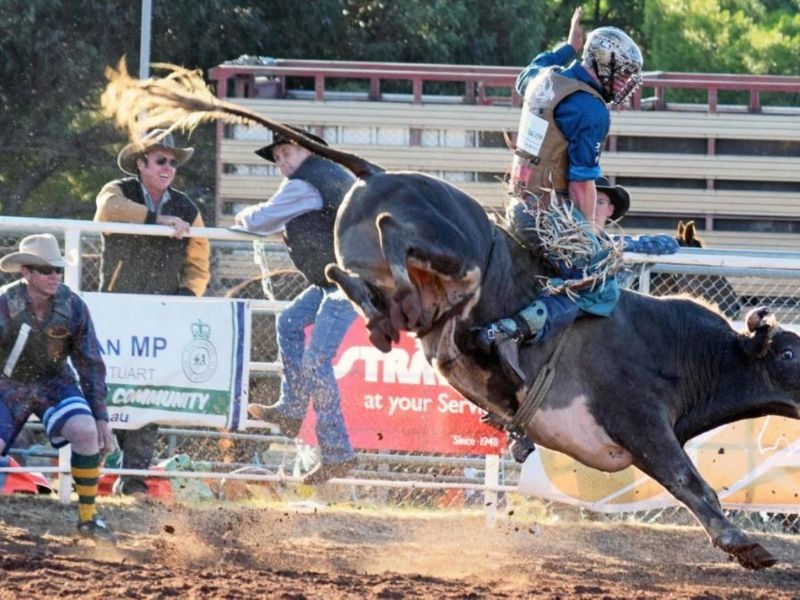
Rodeos
Unfortunately, we in Australia are not exempt from abusing animals for entertainment. Rodeos remain a prolific contributor to animal cruelty, with events happening all across the nation.
It's another exhibition of supposed human bravery and strength, which puts animals under immense stress in unnatural situations they should never be forced into. Cowboys spur the sides of bucking horses, who are terrified and panicking, the violent bucking motion further driven by a strap pulled tight around the animal's flanks. Such extreme bucking can lead to the horse suffering serious spinal injuries, broken legs and even broken necks.
Calves are used to demonstrate human "strength" but calf roping, too, is anything but an impressive feat. The calves are chased around a small ring by people (usually men) on horseback, lassoed around the neck and slammed to the ground. These babies, too, often suffer serious injuries. For some, the act of being pulled up while at full gallop and thrown to the ground, with the man then jumping on top to hog-tie the animal, causes such catastrophic injuries that the animal dies.
Rodeos are disturbing and violent events, which should have been banned long ago. Do not contribute to such horrific mistreatment of animals.
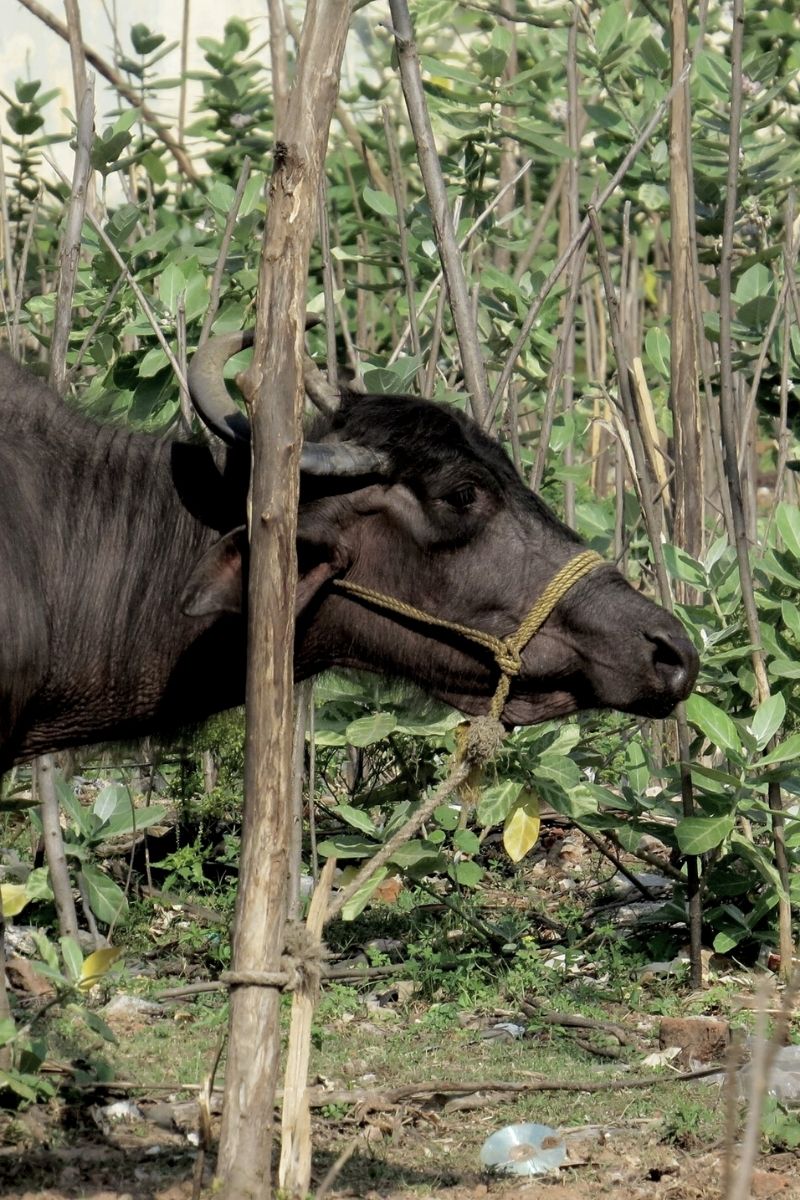
Promoting ethical animal tourism
Australian tourists visiting and paying for these experiences contribute to supply and demand – these practices won't be stopped until consumers actively boycott them.
When planning your getaway holiday once the world reopens, remember that your entertainment should not be at the expense of an animal's life. Plan your itinerary ethically.






